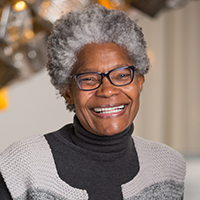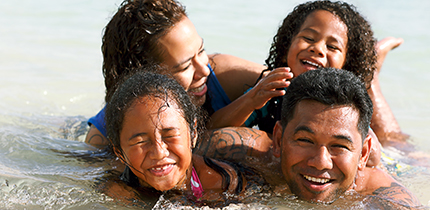
By Dr. Kim Holland, MD.
When I was growing up, I and many kids I knew could not swim well enough to be truly safe in the water. Most adults I knew didn’t know how to swim and even if they did, the pool, the beach and swimming lessons were out of reach until after the civil rights movement in the 1960’s. Kids I knew didn’t learn how to play and have fun in deep water.
One summer my brother dogpaddled out over his head into a current at an unguarded beach. He panicked and only the kindness of a stranger saved him. I never felt safe in water I couldn’t stand up in and I couldn’t learn how to swim. As a grown up, I stayed out of the water when I took my daughters to swim lessons. It wasn’t until about ten years ago that I found the courage to try.
New guidance from the American Academy of Pediatrics shows I’m not alone—they issued a warning that persistent racial and ethnic disparities in swimming abilities are leading to more children of color drowning. And as the foremost authority on kid’s health in our nation, they’re calling on communities to take proactive steps to close the gaps.
More Black children are at risk of drowning
A 2009 study of children 4-17 years old showed that 57% of African-American children were swimmers “at risk” of drowning; that rate was 31% for the white children.
Of course, we don’t need those studies to tell us what we already know. We of the diaspora were called “children of the ocean.” We’ve survived that “longest swim” and the years after but the legacy of pool segregation means that some of us have passed down fear of water from generation to generation.
According to the Washington State Department of Health, drowning accounted for 528 deaths in our state from 2013-2017. African American adolescent boys are more likely to die from drowning than any other groups although Native American Hispanic and Asian boys are also at increased risk. These deaths are completely preventable.
As residents of a city and a region with lakes and the Sound beckoning our kids to jump in, we need to protect our children. That’s why I decided to try again and learn to swim, for the fun of playing in deep water with my grandsons.
Take steps to prevent drowning
 The best thing we can do is help children learn to swim. Non-swimmers should wear life jackets at all time when near the water. There are several resources to borrow for free or get a low-cost child life jacket.
The best thing we can do is help children learn to swim. Non-swimmers should wear life jackets at all time when near the water. There are several resources to borrow for free or get a low-cost child life jacket.
We can also remind kids to swim only in areas with life guards on duty. Studies are showing that teens are equally or more at risk of drowning than toddlers; make sure your teens choose to swim in the lake only in guarded areas. And this time of year, remind children that it’s not safe to swim in frigid water.
Adults can become swimmers and learn CPR. Have a designated pool watcher for young chidren and non-swimmers even when a lifeguard is on duty. Empty kiddie pools and remove toys when not in use.
And take advantage of the fantastic resources our community has available to make swimming lessons more accessible.
Orca Swim School teaches using a method called Miracle Swimming which focuses on overcoming fear of the water first. Orcas teaches in a warm pool near Rainier Beach and reserves a slot in every class for “pay what you can” students. Registration is ongoing.
“While swimming lessons for children are great they additionally need time and exposure to being in the water to fully develop their skills with their maturing bodies and brains,” said Cori Myka, President of Orca Swim School. “This is achieved in families that recreate safely in and around the water. Orca Swim School has chosen to focus on teaching adults to swim to build and create a community of safe swimmers.”
Rainier Beach Community Center’spool, as with all Seattle Parks and Recreation pools, offers generous scholarships to make sure students can afford swim lessons. Rainier Beach has a warm, shallow learning pool and offers women-only swim sessions Sunday from 4:30-5:30pm. (Medgar Evers pool in the Central District is closed for renovations until at least early July.)
To learn more or get your health questions answered, join Dr. Holland at Rainier Beach Community Center for Walk and Talk with Detective Cookie Bouldin every Friday at 11:30 to 12:45 to meet and walk with community members, practice mindfulness, and answer questions about safety, health and fitness. If you want to try the water, she swims at the West Seattle YMCA pool. She welcomes questions about health and Miracle Swimming from anyone who would like to Swim with the Doc.
Dr. Kim Holland is a physician at the Kaiser Permanente Rainier Medical Center.















